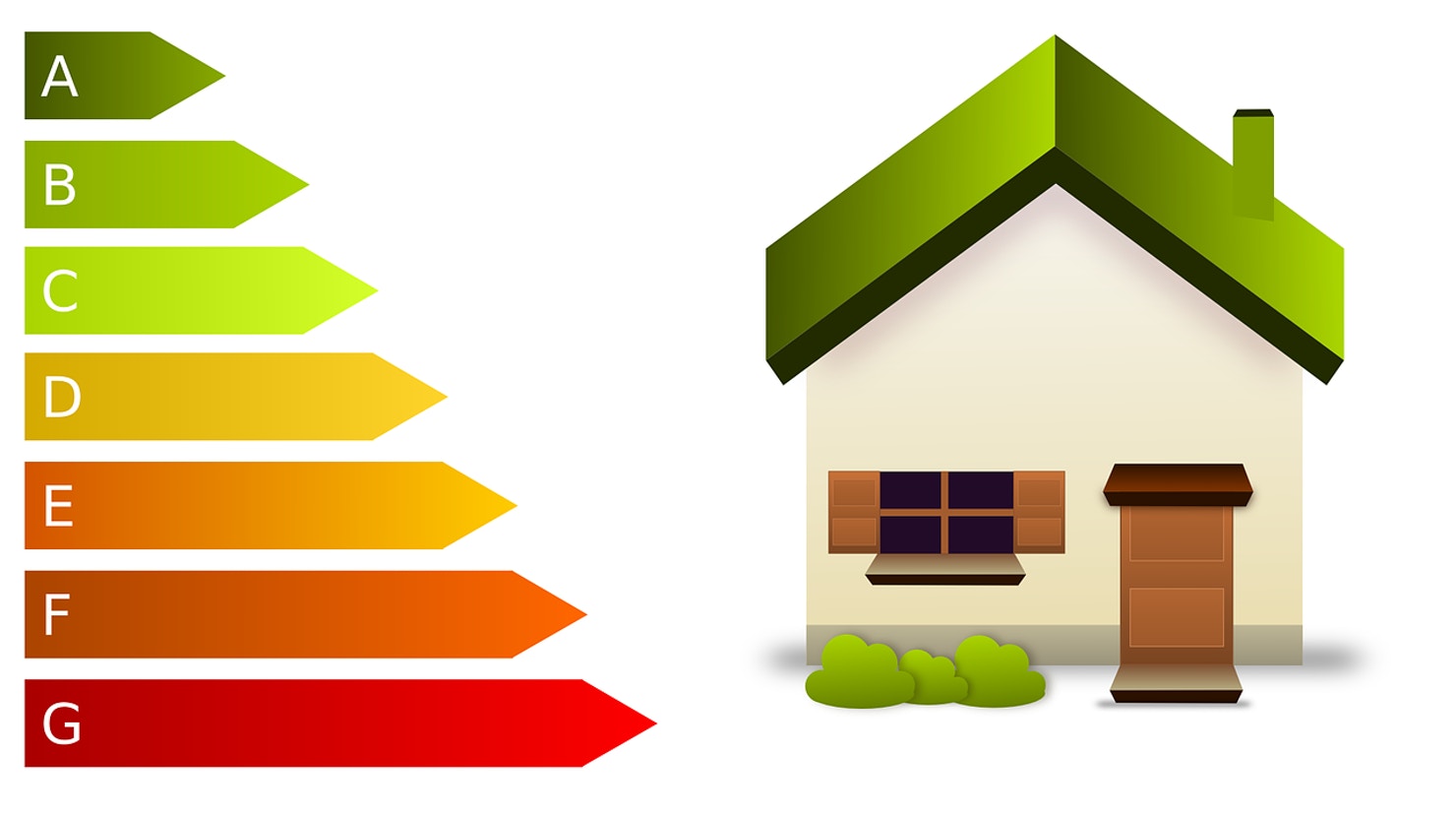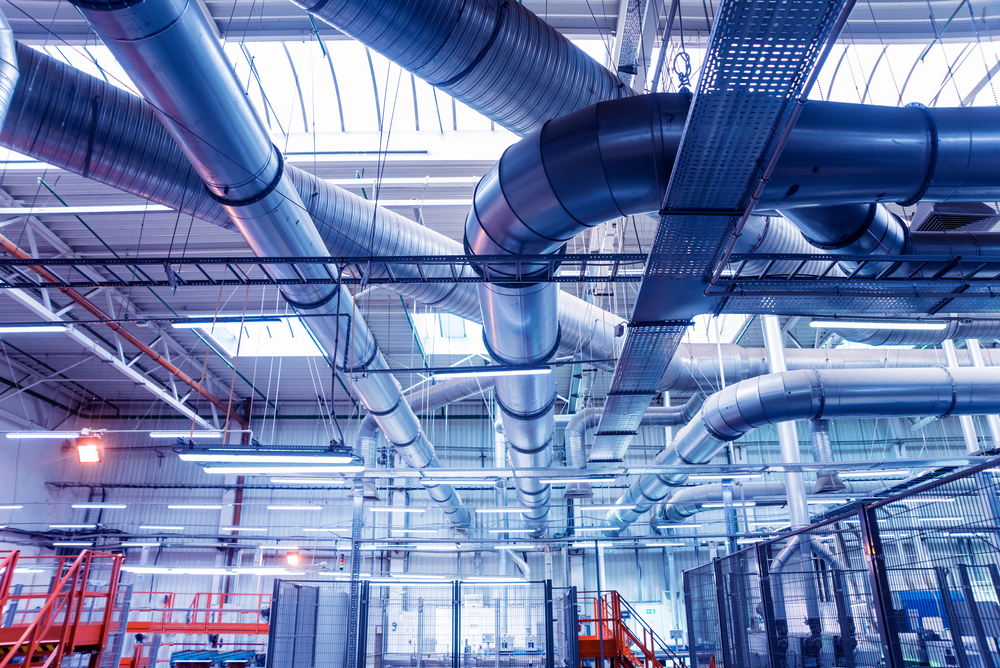
Maintaining HVAC (Heating, Ventilation, and Air Conditioning) efficiency is crucial for energy conservation in commercial buildings. Various factors influence HVAC efficiency, including equipment age and condition, system design and sizing, ductwork and airflow, insulation and building envelope, as well as controls and automation.
This article explores the importance of optimizing HVAC systems, the energy efficiency of new systems, key components affecting HVAC energy efficiency, the impact of building design and insulation, the role of HVAC maintenance, and much more.

Factors Influencing HVAC Efficiency
To understand HVAC efficiency, several factors need consideration:
Equipment Age and Condition: Older HVAC equipment tends to be less efficient than newer models. Regular maintenance and timely upgrades are essential to ensure optimal performance and lowering the amounts of energy used.
System Design and Sizing: Proper system design and sizing ensure that the HVAC system meets the specific requirements of the building, preventing under or overworking of equipment.
Ductwork and Airflow: Well-designed and sealed ductwork ensures efficient distribution of conditioned air throughout the building. Proper airflow management reduces energy waste and improves overall system performance.
Insulation and Building Envelope: Effective insulation and a well-sealed building envelope minimize heat gain or loss, reducing the workload on HVAC systems.
Controls and Automation: Smart controls and automation enable precise temperature and ventilation control, optimizing HVAC operation based on occupancy and environmental conditions.

Optimizing HVAC Systems
Optimizing HVAC systems has numerous benefits:
Energy and Cost Savings: Efficient HVAC systems consume less energy, resulting in lower utility bills and reduced environmental impact. Studies have shown that optimizing HVAC systems can yield energy savings of up to 30%.
Improved Comfort and Indoor Air Quality: Properly functioning HVAC systems maintain consistent temperatures, humidity levels, and good indoor air quality, enhancing occupant comfort and well-being.
Environmental Benefits: Energy-efficient HVAC systems contribute to greenhouse gas emissions reduction, combatting climate change and promoting sustainability.
Extended Equipment Lifespan: Well-maintained and optimized HVAC systems tend to have a longer lifespan, reducing the need for premature replacement and associated costs.
Are New HVAC Systems More Energy-Efficient?
Advancements in HVAC technology have led to increased energy efficiency:
Energy-Efficient Features and Certifications: New HVAC systems often incorporate energy-efficient features such as variable-speed motors, smart controls, and high-efficiency components, directly reducing electricity consumption. Certifications like ENERGY STAR and European Union Energy Label help identify energy-efficient models.
Considerations for Upgrading or Replacing HVAC Systems: When upgrading or replacing HVAC systems, factors such as energy efficiency ratings, system compatibility, and cost-effectiveness need consideration. A comprehensive energy audit can help determine the most suitable options.
HVAC – key system components
Efficient heating and cooling equipment, proper system sizing and load calculations, well-designed and sealed ductwork, energy-efficient insulation and building design, as well as high-performance controls and automation are key components of HVAC energy efficiency.
By addressing these components, businesses can maximize energy savings and system performance.
The efficiency of building design and building fabric:
Building design and insulation play critical roles in HVAC efficiency:
Importance of Insulation in Reducing Heat Transfer: Proper insulation reduces heat gain in warm climates and heat loss in colder climates. Insulation materials, installation techniques, and thermal bridging prevention contribute to overall building energy efficiency.
Factors to Consider in Building Design: Building orientation, window placement, shading, and ventilation design impact HVAC energy demands. Incorporating passive design strategies like natural ventilation and daylight further enhances energy efficiency.

The Role of HVAC Maintenance
Optimizing efficiency through regular maintenance:
Regular Maintenance and Efficiency: Routine maintenance tasks, such as filter replacement, coil cleaning, and lubrication, help maintain system efficiency and prevent breakdowns.
Key Maintenance Tasks: Regular inspections, airflow testing, refrigerant charge verification, and control system calibration ensure optimal HVAC performance and energy efficiency.
Importance of Professional Inspections and Tune-ups: Engaging HVAC professionals for periodic inspections and tune-ups guarantees thorough assessments, early issue detection, and efficient system operation.
Smart technology investment the easy win for older systems
Smart HVAC technology and automation offer additional energy-saving benefits:
Overview of Smart HVAC Technology: Smart thermostats, occupancy sensors, and advanced control systems enable precise control, scheduling, and remote monitoring of HVAC systems, thus reducing cooling or heating costs.
Benefits of Automation and Intelligent Controls: Automation optimizes HVAC operation, responding to occupancy patterns and environmental conditions in real-time, reducing energy waste, and improving occupant comfort.
Tips for Energy-Efficient HVAC Design
Efficient HVAC design focuses on several key considerations:
Proper System Sizing and Load Calculations: Accurate system sizing based on building load calculations ensures optimal efficiency and prevents oversizing or undersizing issues.
Equipment Selection Considerations: Selecting energy-efficient HVAC equipment that matches the specific needs of the building and climate zone is essential. Look for high Seasonal Energy Efficiency Ratio (SEER) and Annual Fuel Utilization Efficiency (AFUE) ratings.
Efficient Ductwork Design and Airflow Management: Well-designed ductwork, properly sized and sealed, ensures efficient air distribution and reduces pressure losses. Balancing airflow and regular duct cleaning further contribute to energy efficiency.
Utilizing Natural Ventilation and Daylighting: Incorporating natural ventilation strategies and utilizing daylighting reduce reliance on mechanical cooling and artificial lighting, resulting in significant energy savings.
Integrating Renewable Energy Sources: Integrating renewable energy technologies like solar panels or geothermal systems into HVAC design further enhances energy efficiency and reduces reliance on traditional energy sources.
Conclusion
Optimizing HVAC systems for energy efficiency is essential for reducing energy consumption, energy costs, improving indoor comfort, and promoting sustainability through reduced carbon emissions and a smaller carbon footprint.
Factors such as equipment age and condition, system design and sizing, ductwork and airflow, insulation and building envelope, as well as controls and automation all play a significant role in HVAC efficiency
Please reach out to us today if you’d like to discuss how Pinergy Business energy services can help make your goals a reality.
Sources:
- ENERGY STAR, European Commission – Energy Labels
- U.S. Department of Energy – HVAC Maintenance Checklist
- Passive House Institute, European Commission – Sustainable Buildings
- U.S. Department of Energy – Advanced Building Controls
- European Union – Smart Buildings
- European Union Energy Label
- ASHRAE – Handbook of Fundamentals
- International Renewable Energy Agency
- Energy.gov – HVAC Preventive Maintenance
- Passive House Institute, U.S. Department of Energy – Advanced Daylighting
- ASHRAE – HVAC Systems and Equipment Handbook
- U.S. Department of Energy, ASHRAE, Sustainable Energy Authority of Ireland
- Energy.gov – HVAC System Life Cycles
- (Source: ASHRAE – Duct Design
- European Environment Agency – Climate Change Mitigation
- European Union – Energy-Efficient Insulation
- ASHRAE – Indoor Air Quality Guide
- U.S. Environmental Protection Agency – ENERGY STAR
- European Commission – Smart and Sustainable Buildings
- Sustainable Energy Authority of Ireland – Building Insulation
- U.S. Department of Energy – Duct Sealing
- ASHRAE – HVAC Design Manual for Hospitals and Clinics
- Energy.gov – Improving Energy Efficiency of HVAC Systems
- Sustainable Energy Authority of Ireland – Energy Auditing
